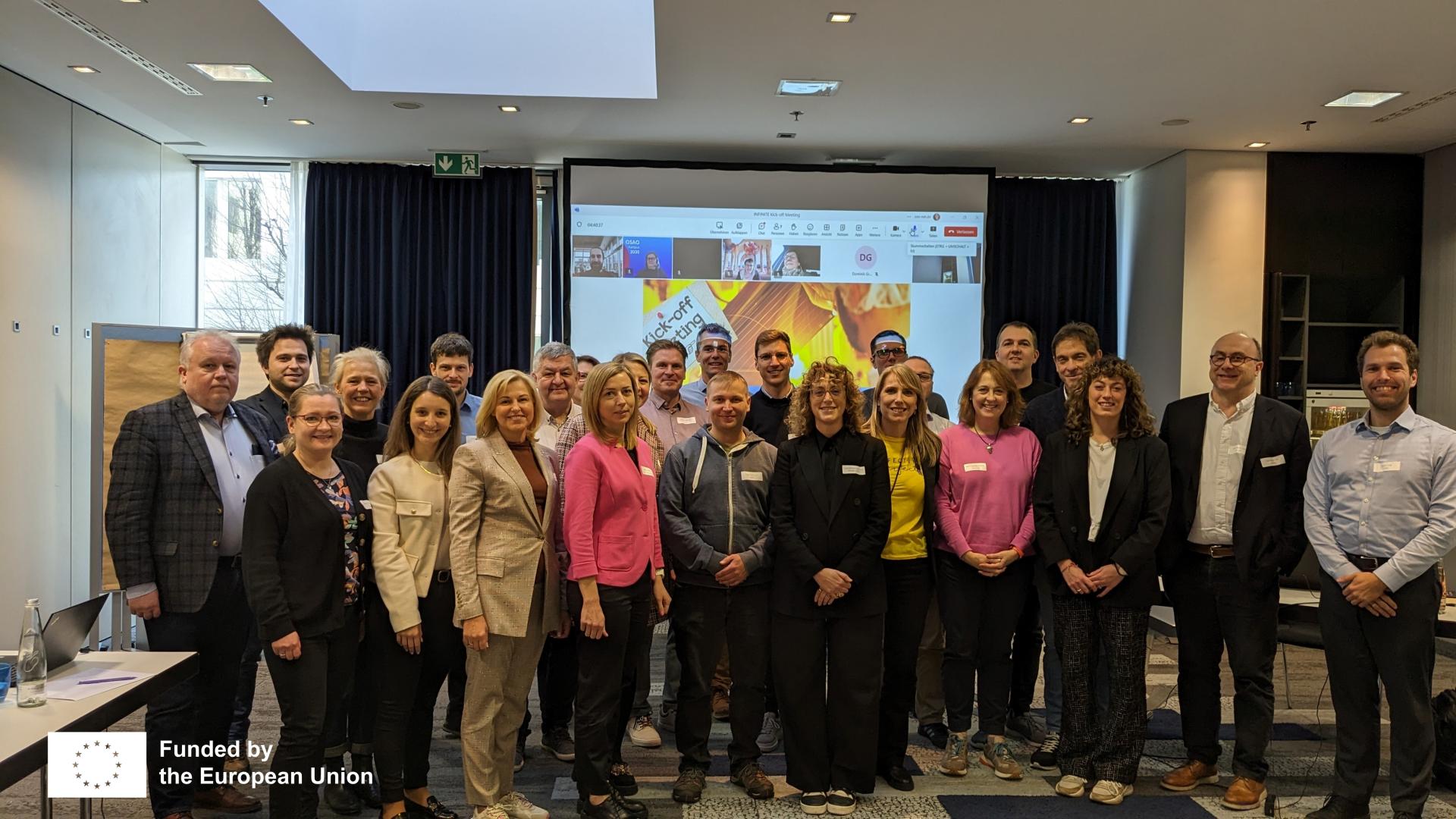Functional Print Cluster participates in a European project to promote vocational training in printed electronics and functional printing.

Last December, the project proposal presented for the creation of a new educational system at the VET level for the training of new professionals in the printed, flexible, and organic electronics sector was approved.
This project is part of the European Education and Culture Executive Agency (EACEA) and is funded for 4 years by the European Union, with a total project budget of 4,761,495 million euros, with a subsidy of 3,809,196 million euros.
The aim of the INFINITE (Intelligent printing, flexible and organic electronics Excellence) project, funded from Europe for four years, is to promote and support the rapid advancement of printed, flexible and organic electronics by providing professional profiles and specialist knowledge to boost its growth through the creation of a new vocational education and training (VET) system that can provide the necessary education for the jobs that are in demand by the value chains involved.
On March 8th, in Munich, the INFINITE project (Intelligent printing, flexible and organic electronics Excellence) was launched, an Erasmus Cove project focused on the creation of an excellent educational system at the level of Vocational Training in the printed, flexible and organic electronics sector.
This project is made up of the following partners: Organic Electronics Saxony (OES) and Ausbildungsverbund Olefinpartner (AVO) on the German side; Functional Print Cluster Association and Salesians Pamplona (Salesians) on the Spanish side; Teknologian Tutkimuskeskus VTT OY (VTT), Oulu University of Applied Sciences (OAM) and Koulutuskuntayhtyma OSAO (OSAO), for Finland; and Latvijas Elektrotehnikas Inelektronikas Rupniecibas Asociacija y Ogres Tehnikums (OT) on the Latvian side.
The project will also have the collaboration of many European partners, whose objective will be to promote and implement it in Europe, in all the participating countries. On the Navarre side, the INFINITE project has the support of the Department of Education of the Government of Navarre and the Institute of Smart Cities of the UPNA. In addition, at the European level, it will have the collaboration of France, Portugal and Greece.
Printed, flexible, and organic electronics (PFOE) is an emerging, cross-cutting field that includes several disciplines, including electronics, materials science, chemistry, physics, printing technologies, and manufacturing and integration engineering. It involves the manufacture of electronic components and devices using printing and thermoforming techniques, enabling the production of flexible, lightweight, and cost-effective electronic products.
The areas of application of PFOE have expanded rapidly over the years. Initially, it focused on applications such as organic light-emitting diodes (OLEDs), radio frequency identification (RFID) tags, smart cards, and displays. However, the field has evolved to include a wide range of industries, including healthcare, accessibility, construction, automotive, aerospace, consumer electronics, energy efficiency, and more.
Spain is currently the second dominant market in the EU, behind Germany and ahead of France, Finland and Sweden. The growth of the EU market is mainly attributed to the penetration of smart consumer electronics and in particular to recent trends in the growing field of medical applications.
Continued advancements in printed, flexible, and organic electronics (PFOE) continue to drive innovation and open up new possibilities for applications and technologies. With the rapid evolution of the field of PFOE, new skills and profiles are required at different educational levels (from operator to engineering specialist).
People hired in companies manufacturing electronic material and equipment, printing and graphic arts, paper, packaging, industrial screen printing or even plastic product manufacturing companies, will have the opportunity to improve their existing skills towards new knowledge and technologies. This project and the transversality of the profiles trained in functional printing and printed electronics, will have a direct impact on these sectors, benefiting from training courses for their employees, international training and hiring of qualified personnel. In 2021, skilled workers in these sectors accounted for more than 11% of employment in Navarre and an income of almost 2 trillion euros, according to data from the INE; therefore, this specialized training that the implementation of INFINITE will offer will have a full impact on the demand for new qualified profiles.
Currently, there is already a high demand for skilled labor that can design, manufacture, and test these devices. The industry requires workers who have knowledge and skills that go beyond content.
Thus, due to the need for a vocational education and training (VET) system that can provide the necessary education for the jobs that are in demand, the INFINITE project was created to respond to these needs.
This project is part of the European Education and Culture Executive Agency (EACEA) and is funded by the European Union.